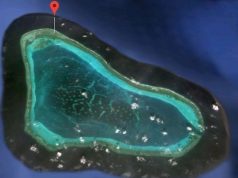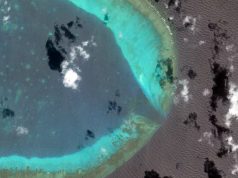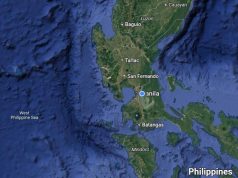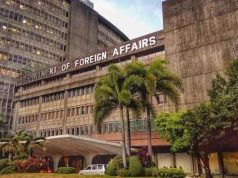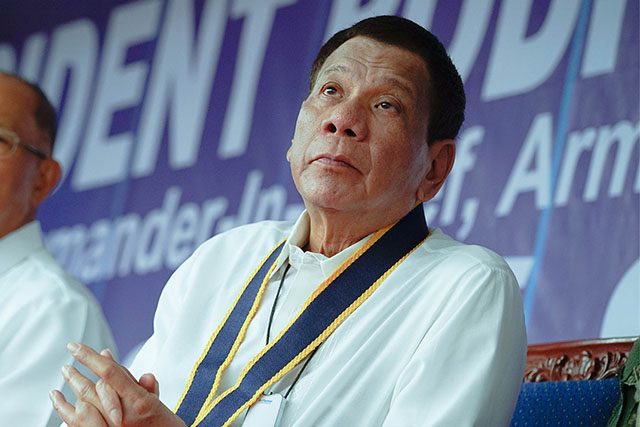
Filipinos presented arguments against the launching of the Duterte Legacy Campaign that aims to present the administration’s supposed accomplishments halfway through the term.
Initiated by the Presidential Communications Operations Office, the campaign hopes to show the government’s progress in three pillars — peace and order, infrastructure development and poverty alleviation.
PCOO Secretary Martin Andanar said that its initial goal is to “inscribe” President Rodrigo Duterte’s legacy by focusing on various narratives from beneficiaries of the administration’s landmark projects.
The campaign was launched on Friday, January 17, at the Philippine International Convention Center where Cabinet members presented what their agencies have supposedly accomplished.
Local and international “truth caravans” will also be conducted by PCOO “to promote priority policy messages and counter disinformation about the Philippine government.”
Andanar said that documentary series, quarterly magazines and podcasts supplementing the campaign would also be released.
The motives of the campaign, which was launched amid the fourth level alert status of Taal Volcano, was questioned by some Filipinos, who pointed out that it does not thoroughly reflect the “true legacy” of Duterte.
Extrajudicial killings and ‘Oplan Tokhang’
For critics of the chief executive, extrajudicial killings and the “Oplan Tokhang” or police-led drug operations were two of the most glaring legacies he has bestowed on the nation three years after assuming office.
“This exhibit must be a gallery full of (scenes) of the crime photos of all the people Duterte and his death squads had killed,” a Twitter user wrote.
This exhibit must be a gallery full of scene of the crime photos of all the people Duterte and his death squads had killed. Because that is Pres. Duterte’s true legacy…
Extrajudicial killings. https://t.co/sgbUrm52Gj
— 🌺 Miz Riz 🌺 (@Miz_Riz_93) January 17, 2020
Political scientist Cleve Arguelles pointed out that Duterte’s “single most important legacy” is the “grave loss of human lives under his administration.”
RELATED: Casualties of Rody’s war
“The single most important #DuterteLegacy is his massacre of thousands and thousands of poor Filipinos, disguised as a war vs. drugs. None of his supposed accomplishments are more important than the grave loss of human lives under his administration,” he commented.
According to the Human Rights Watch’s 2019 report on the Philippines, the country’s human rights crisis “deepened” in 2018, noting that Duterte has continued his “murderous” campaign against illegal drugs.
RELATED: How Duterte’s drug war can fail
It also noted the government’s failure to release official documents pertaining to the drug war, as well as revealing “contradictory statistics” when it comes to figures and data.
“Masked gunmen taking part in killings appeared to be working closely with police, casting doubt on government claims that most killings have been committed by vigilantes or rival drug gangs,” the report said.
Waving sovereign rights on West Philippine Sea
Ever since he took office, Duterte has pivoted the country’s foreign policy from United States, the country’s traditional ally, to China.
It has resulted in alarming encroachment of the Chinese on islands in the West Philippine Sea, including building artificial lands and fishing within the country’s exclusive economic zone, among others.
RELATED: Possibly ‘deliberate’: Experts on the ramming incident in the South China Sea
One Twitter user even claimed that Duterte has become “China’s lapdog” due to his seemingly soft stance against Beijing despite harassing Filipino fishermen that has nearly cost them their lives.
Another user retweeted a social media card from PCOO concerning the Duterte Legacy Campaign and wrote, “Baka strategies in giving our assets to China and ending private assets for take over by Chinese firms.”
China has repeatedly asserted its “nine-dash line” claim over territories that include the exclusive economic zones of Vietnam, Malaysia, Brunei, Indonesia and the Philippines.
Manila won the case against Beijing in a United Nations-backed tribunal supporting the former’s exclusive rights to fish within 200 nautical miles from its coastal baseline. However, Chinese President Xi Jinping has greatly dismissed it.






